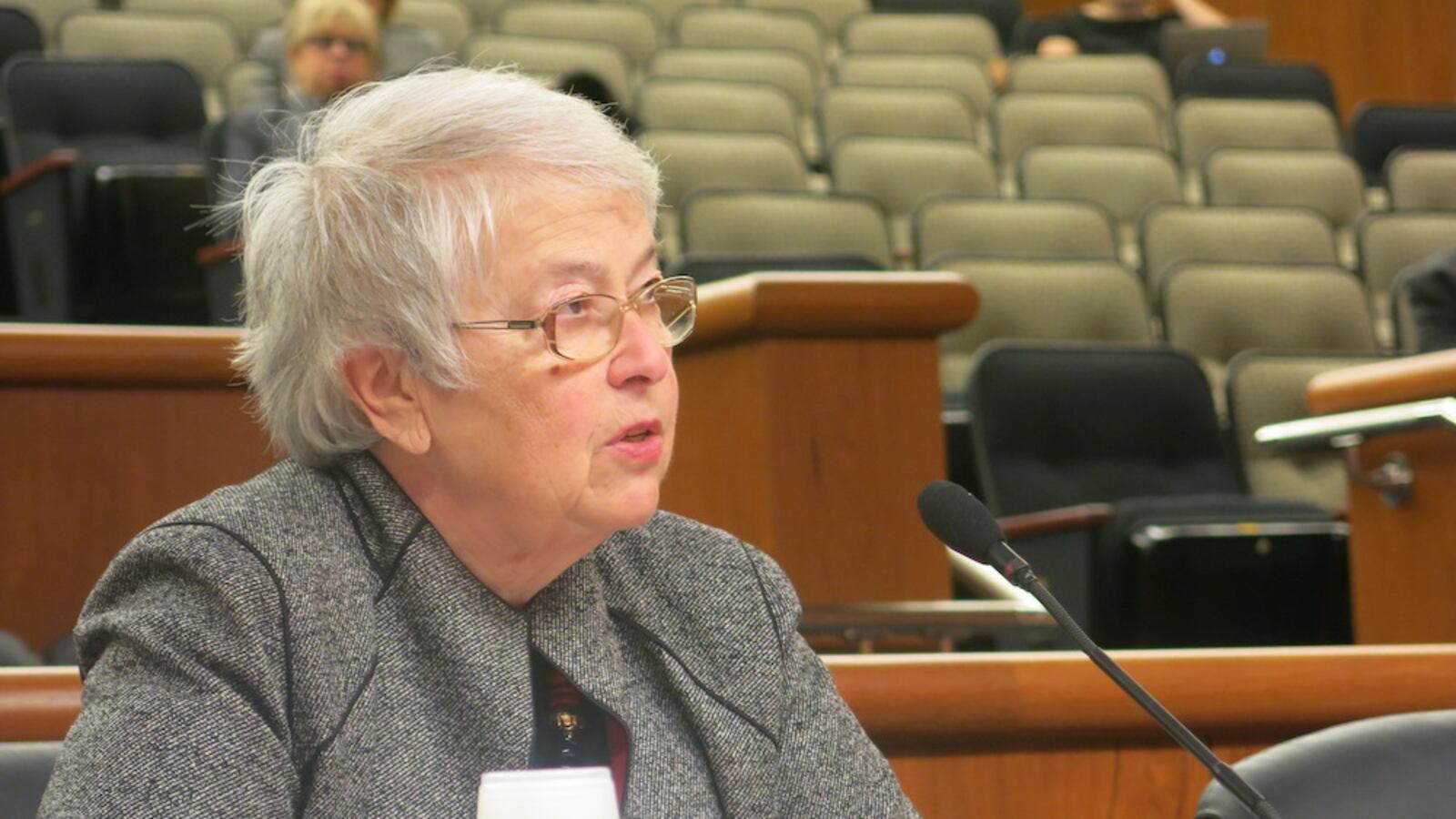New York City’s schools chief will make her annual trek to Albany on Wednesday to answer questions ahead of this year’s legislative session and spell out her wish list for city schools.
For the first time in three years, schools Chancellor Carmen Fariña will not have to defend the city’s education record as she makes the case for an extension of the mayor’s control of the city school system. Instead, thanks to last year’s two-year extension, she will be able to focus on other priorities — which could include more funding for the city’s newest preschool program or pushing against the governor’s plan to approve local school districts’ budgets.
Lawmakers will also have a chance to grill the chancellor, who recently announced her plan to retire in the coming months.
Last year, a lawmaker took the opportunity to ask Fariña about racially segregated pre-K programs. This year, they could ask about any number of hot-button topics, from the city’s controversial school-turnaround program to Mayor Bill de Blasio’s search for Fariña’s replacement, which some critics say should be opened to the public.
Here are a few things to look out for in Fariña’s testimony:
Will she ask for more money than the governor has offered? Gov. Andrew Cuomo proposed a $769 million increase in school aid this year, which some advocates say is not enough to keep up with rising costs. Fariña will have to decide how much to rail against the governor’s proposed increase, which may be a tough in a year when the state is facing significant budget challenges. She may also shed light on whether the modest increase would be a minor nuisance for schools in New York City or a catastrophe. According to the city’s Independent Budget Office, the increase falls about $100 million shy of the amount of school funding the mayor expected to see from the state, as of earlier this fall.
Will she weigh in on Cuomo’s proposal to monitor school district budgets? In his agenda-setting speech this year, Cuomo argued against “trickle-down education funding” and said poor schools should receive more money. To ensure that districts give needy schools their fair share of funds, Cuomo said state officials should start signing off on their budgets.
According to the governor’s plan, New York City is one of five districts whose budgets would come under scrutiny next year.
If it comes up Wednesday, Fariña could either endorse the plan or argue that New York City doesn’t need the oversight since it has a system designed to give more money to needy schools. (The city adopted its “Fair Student Funding” system a decade ago, but some high-poverty schools still don’t receive the full amount they’re owed.)
A spokeswoman for the New York City education said the agency already publishes extensive budget information, suggesting that any further requirements are not necessary.
“We encourage officials to review the publicly available data and consider these details before putting forward a proposal that could prove to be unnecessarily cumbersome for educators,” said the spokeswoman, Toya Holness.
If Fariña comes out against Cuomo’s proposal, she wouldn’t be alone. State Education Commissioner MaryEllen Elia has expressed reservations about the policy, arguing that it may undermine local districts’ control of their schools.
Will Fariña push for more pre-K funding? In April, de Blasio unveiled a plan to expand his popular prekindergarten program to three-year-olds by 2021. But he needs about $700 million from state and federal sources to pull that off.
Observers do not expect the city to get the majority of that money this year, but Fariña could begin laying the groundwork for why she thinks lawmakers should eventually provide extra funding. However, it could be hard to make that case to lawmakers outside of the city, many of whom have yet to see four-year-old prekindergarten in their own districts. (About 80 percent of four-year-old students outside of the city still do not have access to full-day pre-K.)
“The city has gotten a lot of funding,” said Assemblyman Edward Ra, a Republican from Long Island. “We want to see that funding on Long Island.”
Will Fariña get hit with any hard-hitting questions? If they choose, lawmakers could put Fariña on the defensive. They might ask about the city’s slow pace in tackling school integration, or de Blasio’s “Renewal” program, which aims to improve long-struggling schools but has been criticized for its hefty price tag and lackluster results.
Fariña may also be asked about the search for her successor. Despite de Blasio’s insistence on the campaign trail in 2012 that the chancellor search should be a public conversation, the mayor has conducted the search in secret, angering some parents and community members.

